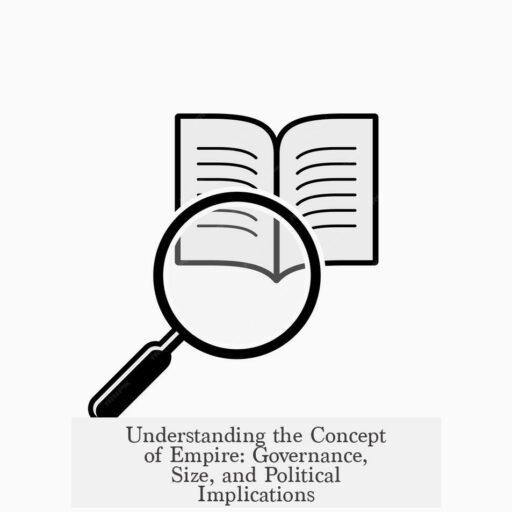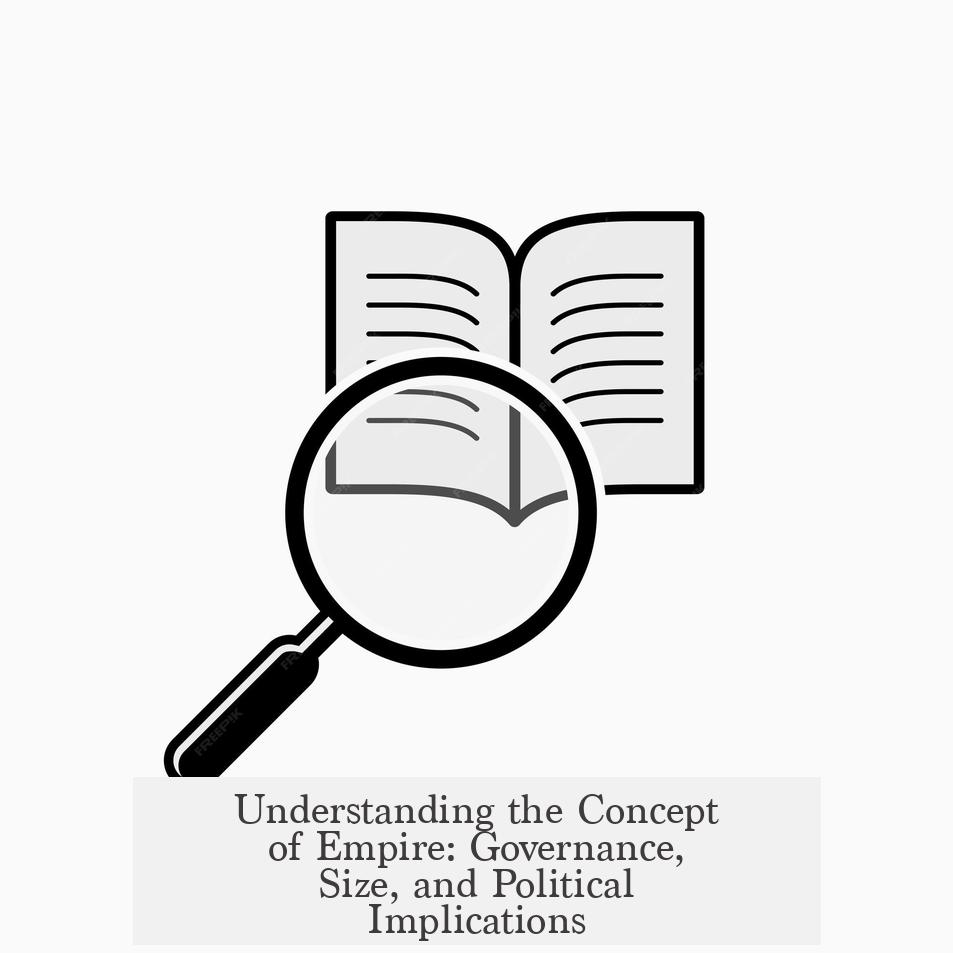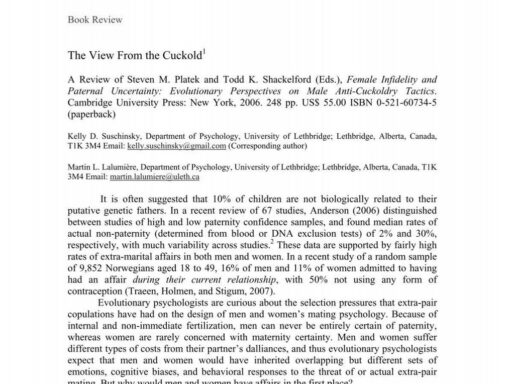An empire is a political entity in which one nation-state exerts direct control over other territories or peoples, often governing them without full representation and usually exercising dominance through military, political, or economic power. This control extends across diverse regions and ethnic groups, consolidating disparate lands under a single overriding authority.
At its core, an empire involves the expansion of a region’s influence beyond its original borders, creating a unified hegemony. This influence can be exerted via hard power, such as military conquest and direct governance, or soft power, like economic dominance and indirect political control. An empire often holds lands previously governed by distinct ethnic or cultural groups, but these lands do not have equal representation within the central power.
Historically, the term “empire” has multiple layers of meaning, with definitions varying across fields and contexts. The simple textbook definition states that an empire holds colonies that do not share the same government as the central or “mother” country but remain subordinate to it. However, this definition encounters challenges. For example, entities like American Samoa fit the colonial model but the United States itself is not generally considered an empire by classic definitions.
Beyond political control, the concept of empire also relates to monarchical and imperial titles. Traditionally, empires were ruled by emperors—monarchs whose rank stood above kings. These titles often trace back to Roman origins, such as Imperator or Caesar, and equivalents in other cultures, like Shahenshah (King of kings) or Kaiser (a German term from Caesar). The Roman Empire sets a historical benchmark for what an empire is, combining the notion of supreme authority with territorial breadth.
Still, many modern states using imperial-style titles may not constitute true empires. Claims to emperorship without the historical or territorial substance often yield realms that lack the cohesive political unity or hierarchical dominance typical of classical empires.
| Empire Characteristics | Details |
|---|---|
| Control | Direct political control over other nations or territories |
| Dominance | Military, political, or economic supremacy |
| Monarchy | Often ruled by an emperor with higher authority than kings |
| Territory | Spans multiple regions, often multiethnic |
| Representation | Subordinate regions have limited or no input in central government |
Empires usually govern multiethnic populations over large territories, reflecting the outcome of military conquest or annexation. Size alone does not define an empire, since some empires reduced to small territorial holdings still retained their imperial status through precedent or tradition. For instance, the Byzantine Emperor ruled chiefly over Constantinople by 1451 but was still regarded as emperor due to historical legitimacy.
In political science, the idea of empire is sometimes debated. Some argue empires require an emperor and formal imperial structure, while others use broader definitions based on influence and control. For example, some view the United States or the Soviet Union as empires due to their global political and economic reach, even without formal colonial empires.
This subjectivity means the term “empire” varies depending on the lens used. In some circles, it is a strict legal or historical category, while in others, it represents a more fluid concept of power and political control.
Interestingly, the labeling of empire carries political significance. States may call themselves empires to express ambitions of political dominance beyond their borders. Conversely, nations often label their rivals as empires to imply aggressiveness or expansionism. For example, during the Cold War, the US and the Soviet Union rarely claimed imperial status but frequently accused each other of imperial behavior.
“The word empire as a taxonomic category of political organization is not meaningful. The unequal relationships between states or other human groups throughout history are complex and boiling it down to one word strips away a lot of nuance.”
Understanding what an empire exactly is requires recognizing diverse definitions while focusing on the core elements: control beyond a home territory, dominance without equal representation, and a unitary authority overseeing multiple peoples or lands. This perspective helps clarify why the concept matters in global history and politics.
- An empire exercises direct political control over territories outside its core nation.
- It often includes multiple ethnic groups under a single government.
- Empires exhibit dominance through military, economic, or political means.
- Traditional empires are typically ruled by emperors, a rank above kings.
- The term empire is subject to different interpretations and political usage.
What exactly is an empire?
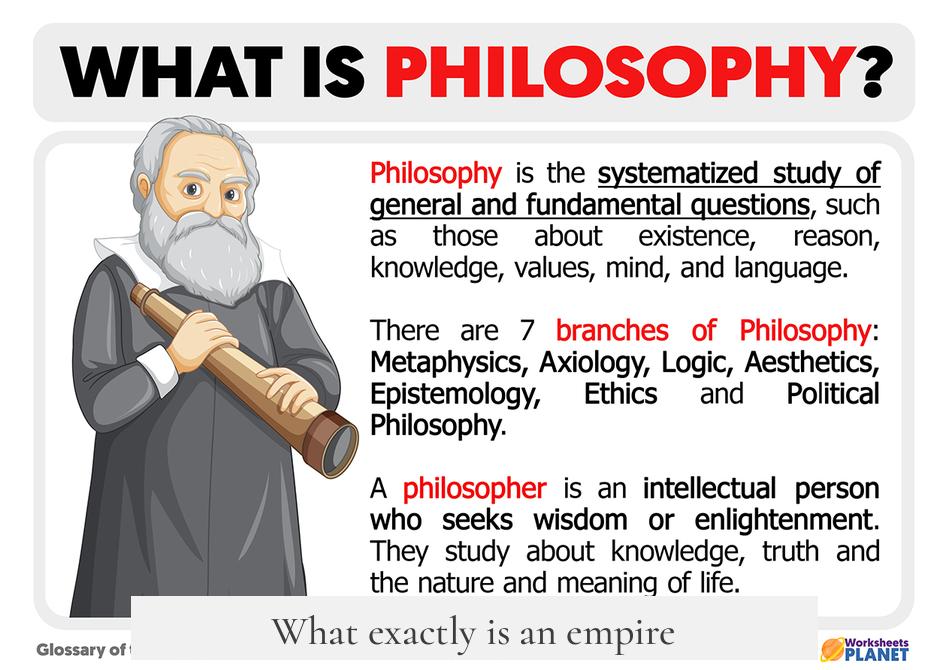
An empire is fundamentally a political entity where one nation-state exerts direct control over other territories or peoples, often spanning vast regions and multiple ethnic groups, ruled usually by a monarch or an emperor whose authority goes beyond that of a mere king. But wait, that’s just the tip of the imperial iceberg.
Let’s unpack this idea, layer by layer, because the word “empire” is like a puzzle with many pieces—each piece a different story of power, control, history, and politics.
Control and Governance: The Heart of Empire
Imagine you’re the boss, but not just of your small office—you run the entire corporation, including branches in other countries, and your decisions shape lives across continents. That’s the essence of empire.
The clearest mark of an empire is direct control. If your government calls the shots in another government, you’re not just friends with benefits—you’re running an empire. Case in point: The British Empire during the 19th century ruled India, Australia, Canada, and others directly from London under Queen Victoria’s reign. The mother country had full sway.
But empires don’t rely only on direct governance. They often dominate others politically, militarily, and economically too. This military muscle or economic leverage keeps the subjected lands in line. Think of it like a big sibling keeping the peace—sometimes with force, other times with money.
The textbook definition might say an empire holds colonies ruled indirectly, but that gets tricky. The USA, for example, is not traditionally labeled an empire, yet American Samoa is a U.S. territory that fits many colonial criteria. So that classic circular dictionary definition? Toss it out.
Empires usually don’t represent the voices of the people they hold. If a country takes over and doesn’t integrate the conquered population democratically, it remains an empire until full political unity is established. In other words, once the conquered lands truly gain equal representation, you might say the “empire phase” has ended.
Expansion is a hallmark, too. Empires grow outward, adding regions under a unified flag — whether by soft economic influence or by hard military conquest sometimes bordering on ruthless. They create what historians call a “unified hegemony.”
The Imperial Crown: Monarchs and Titles
The word “empire” often conjures images of emperors wearing dazzling crowns, and rightly so. The concept was famously rooted in monarchies where an emperor, ranking above kings, oversaw multiple ethnic groups and territories.
Imperial titles derive from Latin, especially from Imperator or Caesar, meaning supreme commander. The Roman emperors set the gold standard. Think of titles like Shahenshah (King of Kings), Basileus (Byzantine equivalent), or Kaiser (German for Caesar) — each signals that the ruler stands above a typical king.
The strictest example of empire? The Roman Empire itself, whose emperors defined the role as both military supreme commanders and political overlords. Some modern rulers claiming “emperor” may not fit this mold, making their realms more honorary than imperial in the strict sense.
For example, the German Empire of 1871 was a realm ruled by an emperor but operated more as a federation of kings under one imperial roof.
It’s Not All About Size—Or Is It?
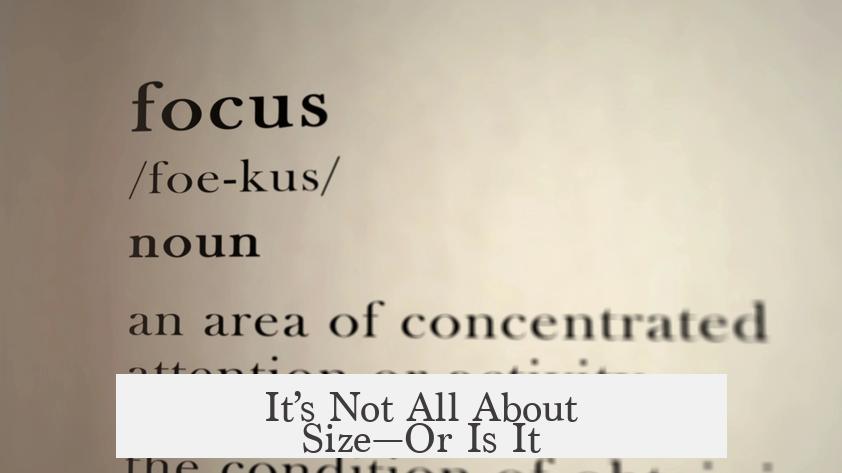
Surprisingly, size does not define an empire. Sure, big empires like Britain or Rome are famous, but size is secondary to tradition and political perception. Take the Byzantine Emperor in 1451, who ruled little beyond Constantinople’s walls but still held the imperial title as heir to Rome.
Empires are usually multiethnic, managing diverse peoples under one political umbrella—often by conquest or annexation. This multiethnicity is more than a side effect; it shapes an empire’s identity and governance challenges.
In simple terms, Merriam-Webster defines an empire as:
a major political unit having a territory of great extent or a number of territories or peoples under a single sovereign authority especially: one having an emperor as chief of state.
So yes, an empire often involves a wide reach and a complex tapestry of peoples.
Varying Definitions Keep It Interesting
Here’s the kicker—there’s no one-size-fits-all definition of empire. The word is subjective, with scholars and states often disagreeing about what truly fits the label.
Some insist an empire requires an emperor. Others argue modern powers like the United States exhibit all the hallmarks of empire—without ever calling themselves that.
During the Cold War, for example, the U.S. and the Soviet Union never called themselves empires, but each accused the other of imperial ambition. Labeling someone else an empire became a political weapon to suggest aggressive expansionism.
The truth is complex. The political relationships and power dynamics between states throughout history can’t be neatly squeezed into one word without losing nuance. An empire can mean different things based on context, intention, and perception.
Why Call Something an Empire? Political Messages Behind the Label
The label “empire” carries weight beyond definitions. States might use it to signal political ambitions or criticize rivals.
- If you call yourself an empire, you might be saying, “I aim to control beyond my borders.” It’s a bold claim of ambition.
- If you call your enemy an empire, you might mean, “They’re aggressive, expansionist, a threat.”
- And if you avoid using the term for yourself but throw it at others, you’re playing the blame game with power.
Remember the Cold War? Neither superpower called itself an empire, but they used the term to describe each other. That shows how “empire” can be more than a description; it’s a narrative tool.
So, What Exactly Is an Empire? A Summary
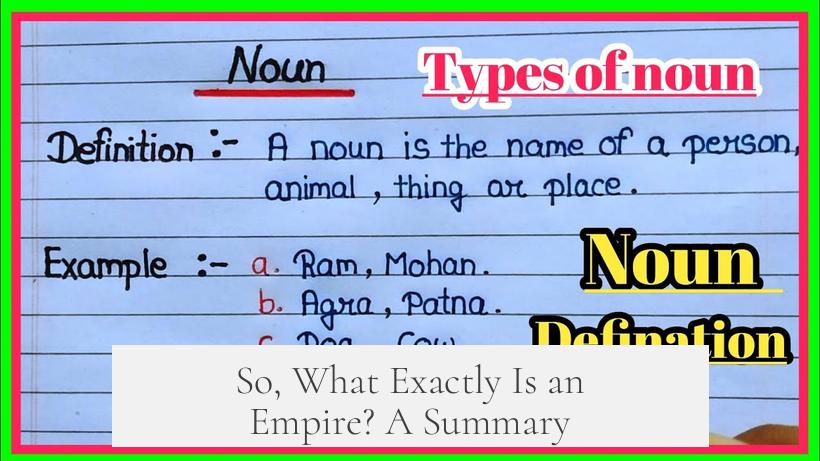
Let’s set aside the academic debates and get practical:
- An empire involves control. Direct political authority over other lands and peoples, usually beyond the original territory.
- It involves power. Military dominance, economic influence, or both.
- It’s ruled by an emperor or equivalent. Someone who holds authority above a king, often commanding multiple ethnic groups.
- It usually spans large regions and ethnicities. Diversity under one political system is common.
- It often refuses or fails to represent conquered peoples fully. Until full integration occurs, the state is still an empire.
- It’s a subjective label. Definitions vary widely; context matters.
- Size doesn’t always matter. Even tiny realms may be imperial if tradition and recognition say so.
Whether you’re chatting about the Roman Empire, the British Empire, or debating if “superpower” means modern empire, this blueprint helps clarify the concept.
Practical Takeaway: Why Should You Care?
Understanding empires is crucial because their legacies shape politics, culture, and even borders today. The shadow of empires lingers:
- Colonial histories still influence economic relations.
- Modern-state powers continue to use ‘soft’ and hard power in ways reminiscent of empire-building.
- The word “empire” itself is a tool in geopolitics, branding, and identity.
Knowing what an empire really is helps you spot when power dynamics mirror historical patterns. Next time someone throws around the word “empire” to describe a country or policy, you’ll know exactly what heat they’re trying to turn up.
So, are empires relics of the past, or are they alive and kicking in new forms? That’s a question for another imperial-sized chat.
